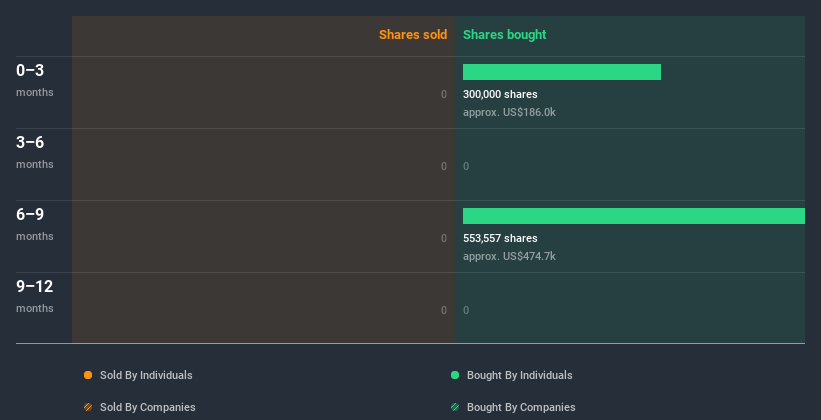Who Has Been Buying Civeo Corporation (NYSE:CVEO) Shares?

We often see insiders buying up shares in companies that perform well over the long term. The flip side of that is that there are more than a few examples of insiders dumping stock prior to a period of weak performance. So before you buy or sell Civeo Corporation (NYSE:CVEO), you may well want to know whether insiders have been buying or selling.
What Is Insider Buying?
Most investors know that it is quite permissible for company leaders, such as directors of the board, to buy and sell stock in the company. However, most countries require that the company discloses such transactions to the market.
We don't think shareholders should simply follow insider transactions. But logic dictates you should pay some attention to whether insiders are buying or selling shares. As Peter Lynch said, 'insiders might sell their shares for any number of reasons, but they buy them for only one: they think the price will rise'.
View our latest analysis for Civeo
Civeo Insider Transactions Over The Last Year
Over the last year, we can see that the biggest insider purchase was by Independent Director Martin Lambert for US$273k worth of shares, at about US$0.91 per share. That means that even when the share price was higher than US$0.79 (the recent price), an insider wanted to purchase shares. It's very possible they regret the purchase, but it's more likely they are bullish about the company. In our view, the price an insider pays for shares is very important. Generally speaking, it catches our eye when insiders have purchased shares at above current prices, as it suggests they believed the shares were worth buying, even at a higher price.
While Civeo insiders bought shares during the last year, they didn't sell. The average buy price was around US$0.80. I'd consider this a positive as it suggests insiders see value at around the current price. You can see the insider transactions (by companies and individuals) over the last year depicted in the chart below. By clicking on the graph below, you can see the precise details of each insider transaction!
Civeo is not the only stock insiders are buying. So take a peek at this free list of growing companies with insider buying.
Insiders at Civeo Have Bought Stock Recently
It's good to see that Civeo insiders have made notable investments in the company's shares. Specifically, Independent Director Martin Lambert bought US$188k worth of shares in that time, and we didn't record any sales whatsoever. This makes one think the business has some good points.
Insider Ownership
Many investors like to check how much of a company is owned by insiders. Usually, the higher the insider ownership, the more likely it is that insiders will be incentivised to build the company for the long term. Our data suggests Civeo insiders own 3.3% of the company, worth about US$4.5m. But they may have an indirect interest through a corporate structure that we haven't picked up on. We consider this fairly low insider ownership.
What Might The Insider Transactions At Civeo Tell Us?
The recent insider purchase is heartening. We also take confidence from the longer term picture of insider transactions. But we don't feel the same about the fact the company is making losses. We would certainly prefer see higher levels of insider ownership but analysis of the insider transactions suggests that Civeo insiders are expecting a bright future. So these insider transactions can help us build a thesis about the stock, but it's also worthwhile knowing the risks facing this company. To assist with this, we've discovered 2 warning signs that you should run your eye over to get a better picture of Civeo.
But note: Civeo may not be the best stock to buy. So take a peek at this free list of interesting companies with high ROE and low debt.
For the purposes of this article, insiders are those individuals who report their transactions to the relevant regulatory body. We currently account for open market transactions and private dispositions, but not derivative transactions.
This article by Simply Wall St is general in nature. It does not constitute a recommendation to buy or sell any stock, and does not take account of your objectives, or your financial situation. We aim to bring you long-term focused analysis driven by fundamental data. Note that our analysis may not factor in the latest price-sensitive company announcements or qualitative material. Simply Wall St has no position in any stocks mentioned.
Have feedback on this article? Concerned about the content? Get in touch with us directly. Alternatively, email editorial-team@simplywallst.com.


